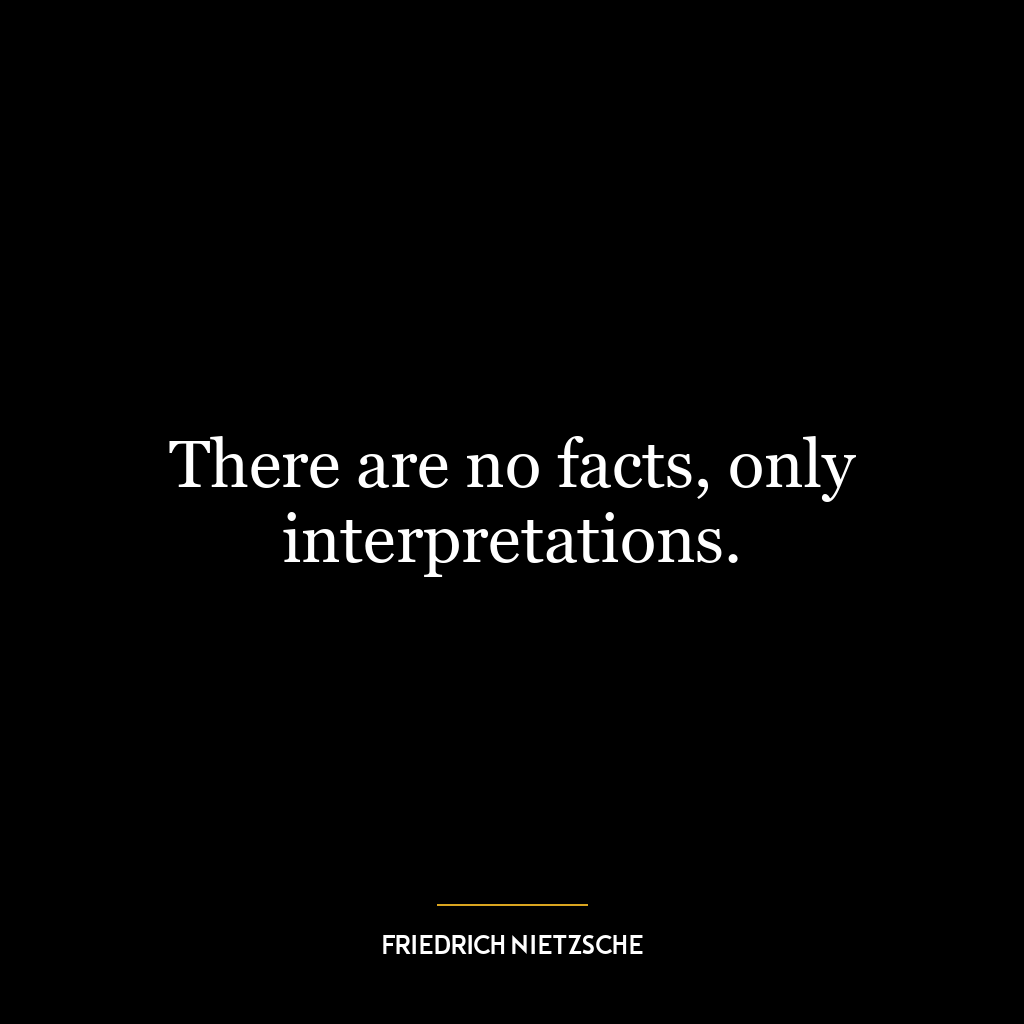“There are no facts, only interpretations” suggests that our understanding of the world is not based on objective truths, but rather on our subjective interpretations of our experiences. This means that what we consider as ‘facts’ are essentially filtered through our personal lenses – our beliefs, biases, and experiences. Consequently, each person’s perception of reality is unique and different from others.
This quote challenges the concept of absolute truth and emphasizes the role of perspective in shaping our understanding of the world. It implies that our knowledge is not a mirror of reality, but a construction of it. This is not to say that there are no truths, but rather, these truths are subject to the interpretations and understandings of individuals.
In today’s world, this idea can be seen in the way information is consumed and shared, especially in the era of social media and ‘fake news’. The same event can be interpreted differently by different people, leading to different narratives and understandings. This can lead to polarization, where different groups have vastly different interpretations of the same ‘facts’.
In terms of personal development, this quote can be empowering. It reminds us that our perspective on life is not fixed, but can be changed. This means that we have the ability to reframe negative experiences and to choose our own narrative. It also encourages empathy, as it reminds us that other people may have different interpretations of the same events, which are equally valid.
However, it is important to note that this idea does not mean that all interpretations are equally correct or beneficial. While our interpretations of facts can vary, this does not negate the existence of objective reality. Misinterpretations or distortions of reality can lead to harmful beliefs or actions. Therefore, while it is important to recognize the role of interpretation, it is also crucial to strive for interpretations that are as accurate and constructive as possible.















